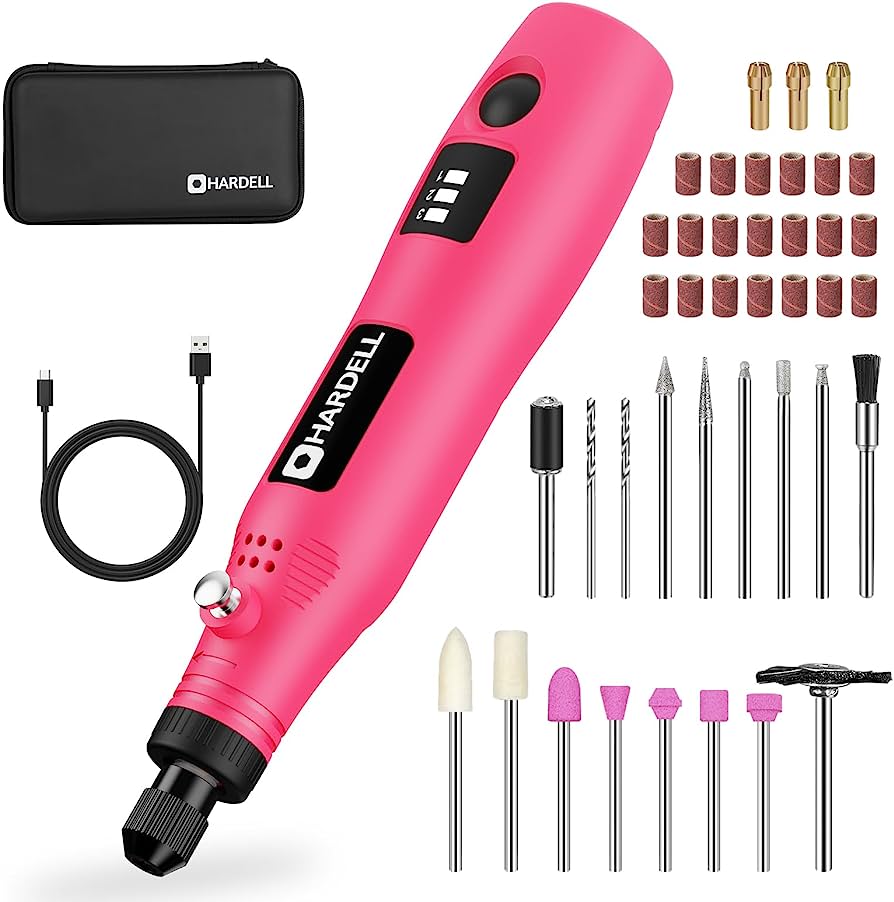Metal detector machines are devices used to detect the presence of metal objects. These machines emit electromagnetic fields that interact with metallic substances, producing a signal when metal is detected.
Metal detector machines are commonly used in security screening processes to identify weapons or contraband items made of metal. They are also used extensively in industries such as mining, construction, archaeology, and treasure hunting to locate buried or hidden metal objects.
With their ability to accurately detect and locate metal, these machines play a vital role in ensuring safety and minimizing risks in various settings. Whether it’s for security purposes or uncovering buried treasures, metal detector machines are indispensable tools in different fields.

Credit: www.technology-innovators.com
Why Metal Detector Machines Are Essential In Various Industries
Metal detector machines are essential in various industries for enhancing production processes. These machines play a crucial role in promoting quality control and ensuring product safety. By accurately detecting metal contaminants, they prevent potential hazards, accidents, and injuries in work environments.
Metal detectors are capable of identifying even the smallest pieces of metal, ensuring that only safe and reliable products reach the market. They are commonly used in industries such as food production, pharmaceuticals, mining, and manufacturing. Metal detector machines provide peace of mind to both industry professionals and consumers by maintaining consistent quality standards.
With their ability to efficiently detect and remove metal impurities, these machines are indispensable in ensuring smooth operations and safeguarding the well-being of both workers and consumers.
How Metal Detectors Work: Unleashing Precision In Detection
Metal detectors are machines that utilize electromagnetic fields for accurate metal detection. They work by generating an electromagnetic field through a coil, which produces a magnetic field when an electric current passes through it. When metal objects come into contact with this magnetic field, they disrupt it, thereby causing the metal detector to emit an audible signal or display a visual indication.
The components of a metal detecting machine typically include a control box, search coil, and shaft. The control box contains circuitry that interprets the signals received from the coil and provides output to the user. The search coil, also known as the detection head, is responsible for emitting and receiving the electromagnetic field.
The shaft allows users to adjust the height and angle of the search coil to suit their preferences. Understanding the technology behind metal detectors provides insight into their precise and effective detection capabilities.
Types Of Metal Detector Machines: Choosing The Right Tool For The Job
Metal detector machines come in various types, making it crucial to choose the right one for your needs. Industrial metal detectors offer enhanced efficiency, uncovering the potential for improved productivity. Handheld metal detectors, on the other hand, provide lightweight and portable precision, ideal for on-the-go applications.
Walk-through metal detectors play a vital role in maintaining security and safety at entry points, ensuring thorough screening. Each of these machines serves a unique purpose, catering to specific requirements in diverse settings. Whether you need to enhance efficiency in industrial operations or maintain security in public spaces, selecting the appropriate metal detector machine is essential.
So, consider your needs and choose wisely for optimal results.
Features And Functions: Unraveling The Power Of Metal Detector Machines
Metal detector machines are powerful tools that have a variety of features and functions. These machines are designed to unravel the hidden treasures buried beneath the ground. One of the key features of metal detector machines is their sensitivity settings, which allow users to fine-tune the detection precision.
By adjusting these settings, users can increase or decrease the sensitivity of the machine to detect different types of metals. Another important function of these machines is target identification. With advanced technology, they are able to discriminate between different metal types.
This is especially useful for treasure hunters who want to specifically search for certain types of metals. Metal detector machines also offer multiple frequency options, allowing users to adapt to various detection needs. Whether you’re searching for coins, relics, or even gold, these machines can be adjusted to meet your specific requirements.
With their incredible features and functions, metal detector machines are a must-have for any treasure hunter or enthusiast.
Industries Benefiting From Metal Detector Machines: Efficiency At Its Finest
Industries across various sectors are reaping the benefits of metal detector machines in their operations. One such industry is food processing and packaging, where these machines ensure contamination-free products. The accuracy and efficiency of metal detectors are essential for guaranteeing safe and high-quality food items.
Similarly, mining and exploration companies are harnessing the precision of metal detector machines for mineral extraction. These devices aid in identifying and extracting valuable metals while minimizing wastage. In the construction and demolition sector, metal detectors play a crucial role in enhancing safety in work zones.
They help detect hidden metals, such as nails and wires, preventing potential accidents and injuries. With their effectiveness and reliability, metal detector machines have become indispensable tools in a wide range of industries. Their contribution towards efficiency and safety is undeniable.
Best Practices For Optimal Efficiency: Maximizing Metal Detector Machine Performance
Metal detector machines play a crucial role in enhancing security and efficiency in various industries. To maximize their performance, it is important to follow best practices. Proper installation and calibration ensure accurate results. Regular maintenance and cleaning are necessary to increase the machine’s longevity.
Operator training and education on effective metal detection techniques are vital for optimal efficiency. These practices enhance the machine’s capabilities and minimize false alarms. By implementing these steps, you can ensure that your metal detector machine performs at its best, improving overall safety and productivity.
With proper attention to installation, maintenance, and operator training, you can unlock the full potential of your metal detector machine.
Future Innovations In Metal Detection Technology: Advancing Precision And Efficiency
The future of metal detection technology is advancing with innovations like the integration of artificial intelligence (ai) in metal detectors. Ai ensures higher precision and efficiency in detecting and identifying metals. Another development is the inclusion of wireless connectivity, allowing real-time data analysis and enhanced functionality.
Metals can now be identified and tracked more accurately through advanced software. Furthermore, miniaturization has led to the creation of wearable metal detection devices, making it easier for users to carry and operate them. These portable devices are convenient for various applications, such as security screening and archaeological surveys.
With these future innovations, metal detectors are becoming smarter and more efficient in identifying and locating different types of metals. This technology is not only revolutionizing metal detection processes but also enhancing the overall user experience.
Frequently Asked Questions For Metal Detector Machine
How Does A Metal Detector Machine Work?
A metal detector machine uses electromagnetic fields to detect metal objects underground. When the machine’s coil passes over a piece of metal, it disrupts the electromagnetic field, triggering an alert to the user. This technology is based on the principles of electromagnetic induction and is widely used in a variety of applications, such as treasure hunting and security screening.
What Are The Different Types Of Metal Detector Machines Available?
There are various types of metal detector machines available, including those designed for hobbyists, professional treasure hunters, and security personnel. Some common types include motion detectors, pulse induction detectors, and beat frequency oscillation detectors. Each type has its own strengths and is suitable for different applications, so it’s important to choose one that meets your specific needs.
Can Metal Detector Machines Find Different Types Of Metals?
Yes, metal detector machines can detect a wide range of metals, including ferrous metals (such as iron and steel), non-ferrous metals (such as aluminum and copper), and precious metals (such as gold and silver). However, the detection capabilities may vary depending on the specific type and quality of the metal detector machine you are using.
It’s always a good idea to consult the manufacturer’s specifications to determine the detection range for different types of metals.
How Deep Can A Metal Detector Machine Detect?
The depth at which a metal detector machine can detect objects depends on several factors, including the type of metal being detected, the size of the object, and the quality of the metal detector. In general, most metal detectors can detect small objects buried up to 8-12 inches deep, while larger objects can be detected at greater depths.
However, it’s important to note that detection depth may vary and can be affected by various environmental factors, such as soil composition and mineralization.
Is It Legal To Use A Metal Detector Machine?
The legality of using a metal detector machine depends on the specific laws and regulations of your country or region. In many places, it is legal to use metal detectors for personal use, such as treasure hunting on public lands or beaches.
However, there may be restrictions on certain areas, such as historical sites or private properties, where permission is required. It’s important to research and comply with the local laws and regulations before using a metal detector machine to avoid any legal issues.
Conclusion
The use of metal detector machines has become an essential tool in various industries and sectors. From ensuring safety and security in airports and public spaces to improving the efficiency and effectiveness of archaeological surveys, these devices have proven their worth.
Metal detector machines allow for quick and accurate detection of metallic objects, saving businesses time and money. With advanced technology and user-friendly features, these machines have made the detection process seamless and convenient. Moreover, the ability to customize settings based on specific requirements adds to their versatility.
By investing in a reliable and high-quality metal detector machine, businesses can enhance their operations, protect their assets, and maintain a secure environment. Embracing this technology not only improves productivity but also demonstrates a commitment to safety and quality. Don’t miss out on the advantages that a metal detector machine can offer, get yours today!

